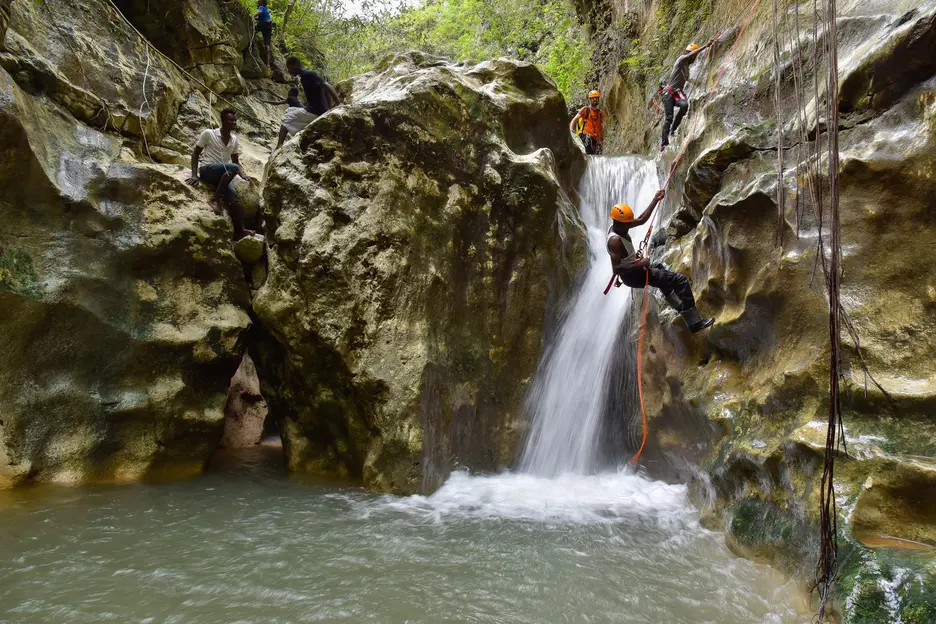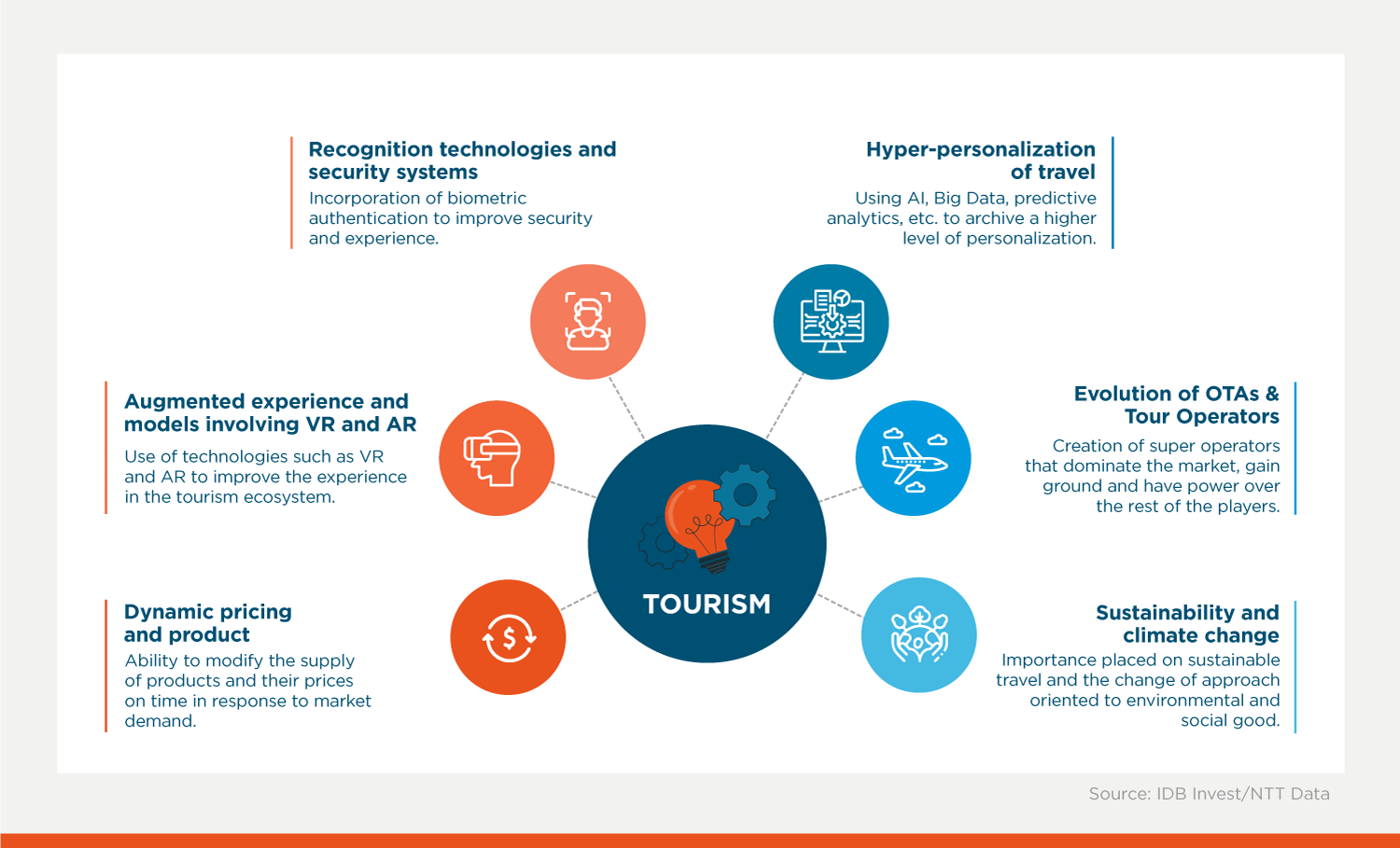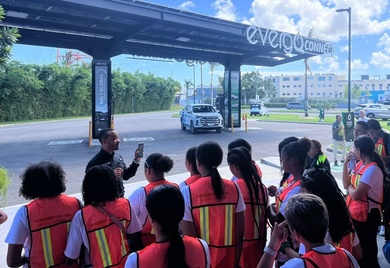Holidays 2.0: How Technology is Shaping the Future of Tourism in Latin America and the Caribbean

The importance of the tourism industry and its related economic activities is beyond apparent for Latin America and the Caribbean when we look at its contribution to GDP, employment, and exports.
Back in 2019, the sector accounted for 26% and 10% of the overall GDP in the Caribbean and Latin America, respectively. It created 35% of direct and indirect jobs in the Caribbean and 10% in Latin America.
As a cross-cutting industry, it involves sectors like transportation, hospitality, cuisine, culture, leisure, and entertainment, among others. It can potentially become a leading sector in fighting for environmental sustainability, biodiversity conservation, and climate change.
Exploiting the sector's potential will not be easy. Several challenges can be expected in the coming years, which may hinder its development but also appear as a big opportunity.
IDB Invest and NTT Data have carried out a research series that provides findings, insights, and recommendations on how new technologies are transforming different industries and how critical the use of smartphones is to bridge the digital gap in the region.
As part of that research, the study "How New Technologies are Transforming Tourism in Latin America and the Caribbean" shows that digital transformation is changing the way the tourism sector is evolving, with more convenience and security and fewer touchpoints.
It also underlines the high fragmentation of the sector, as well as changes in consumer preferences and the lack of qualified personnel. The diversity of players, from small to large international businesses, complicates technology adoption and restricts collaboration, making it difficult to meet the demands of an enormous number of travelers seeking superior experiences tailored to their changing needs.
Additionally, commercial banks have been reluctant to finance tourism projects, which limits growth potential and leads to exploring other financing alternatives. This requires incentives for financial institutions to consider tourism as a feasible, valuable industry that can create economic growth and employment in the region.
On the other hand, the more clients adopt new technologies, the higher the demand for enhanced, personalized, and seamless experiences, forcing industry actors to keep up with the latest technology trends.
A clear example of the consequences of not adapting to technologies was the online travel agencies (OTAs) bursting into the industry in the 2000s, disrupting the entire ecosystem and making hotel owners lose a share of the marketshare, which they still have not managed to earn back.
Regardless of how travelers make their bookings, how travel agencies render their services, or what amenities airlines and hotels offer, technology has permeated almost every single element of the tourism industry and transportation in general.

However, it is important to stress that tourism companies need to find the balance between technology solutions and human interaction, as customers consider it vital for a satisfactory experience.
Advances in near-real-time data capture and collection have opened up a whole world of possibilities for companies in the tourism sector. Thanks to this avalanche of information, companies can identify customers clearly and understand their behavior, preferences, and needs in depth and detail.
These are valuable insights that can help them create highly personalized products and services tailored to each customer’s expectations. In fact, personalized services are expected to be the main brand differentiator by 2025.
Both the emergence of new technologies and consumers' changing behavior are pushing sector players to evolve and adapt to the current situation with new business models.
Market players are choosing to integrate marketplaces into their platforms, providing their customers with multiple services and products that generate additional revenue all throughout the travelers’ lifecycle.
Additionally, such models as TaaS (Travel as a Service) and nature-based travel offer affordable subscription models, guaranteeing service quality, encouraging environmental conservation, and empowering local communities.
As Latin America and the Caribbean moves forward towards post-pandemic industry recovery and adaptation, it remains clear that technology-led emerging trends should be capitalized and current challenges should be addressed to secure significant, sustainable growth.
LIKE WHAT YOU JUST READ?
Subscribe to our mailing list to stay informed on the latest IDB Invest news, blog posts, upcoming events, and to learn more about specific areas of interest.
Subscribe



